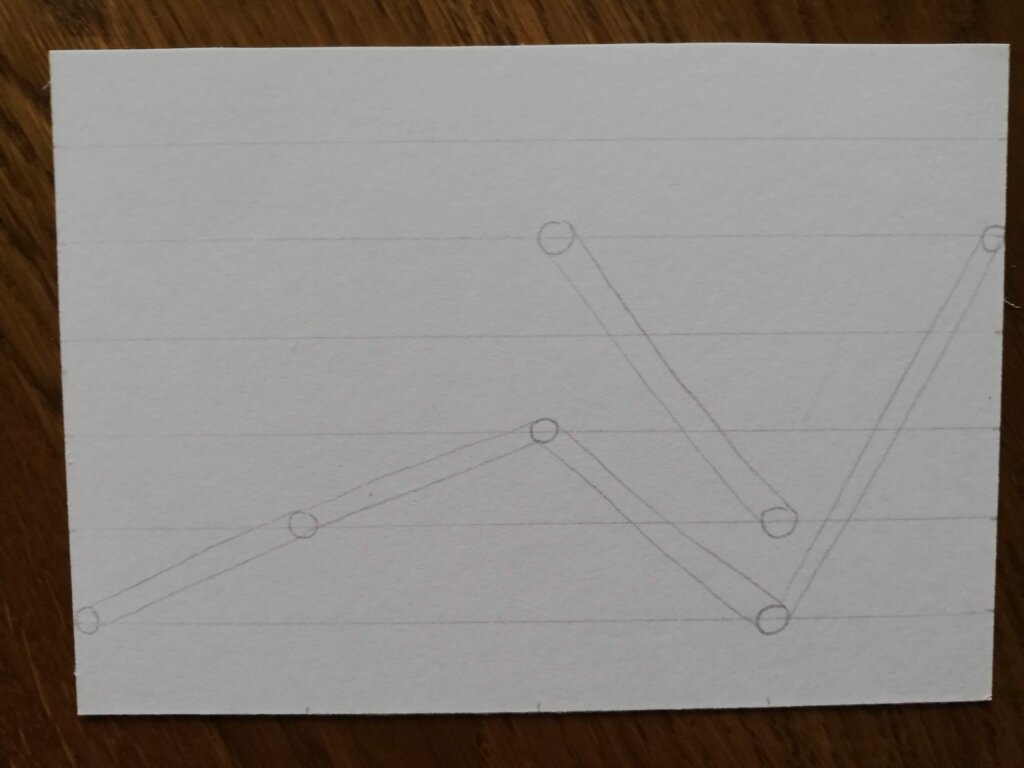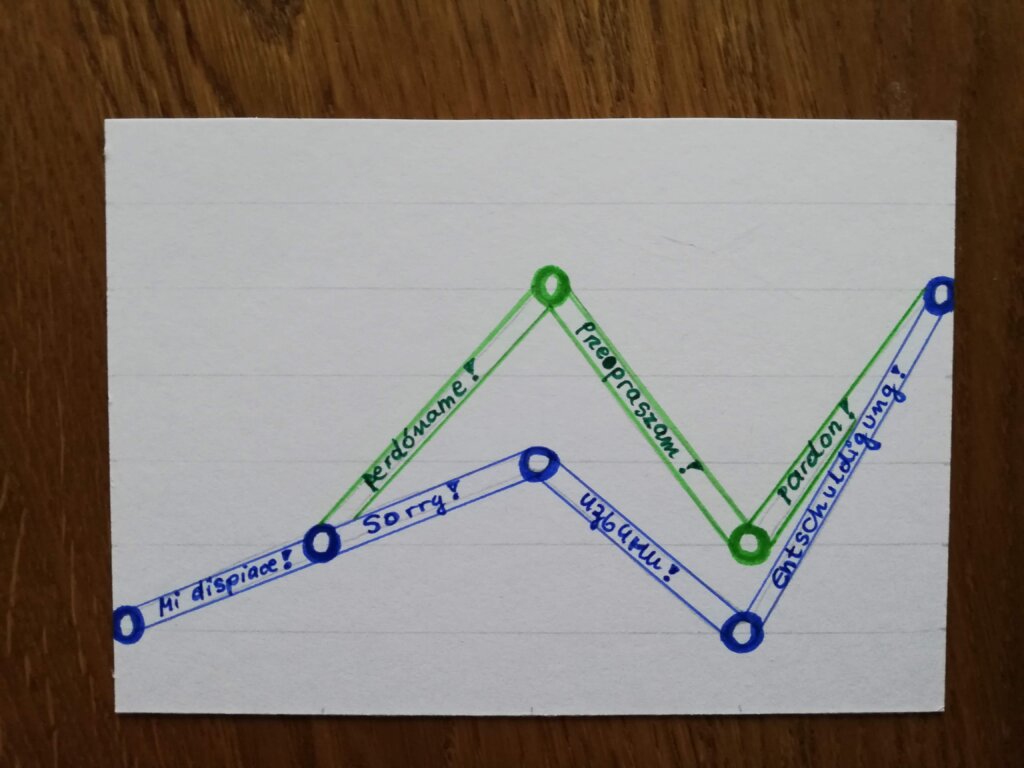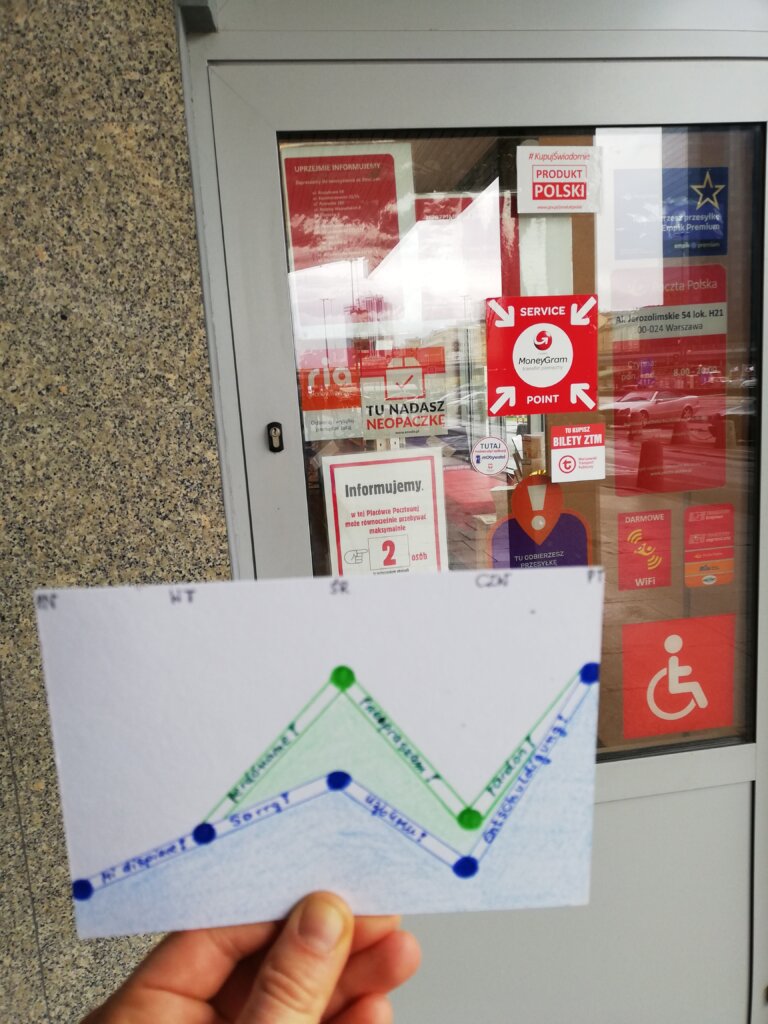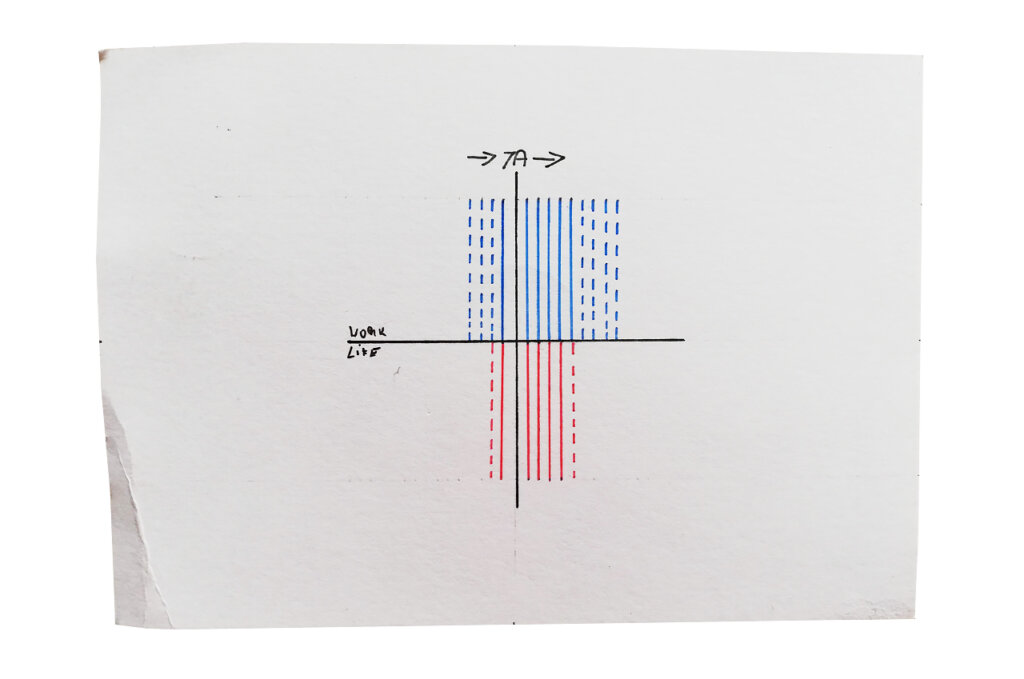
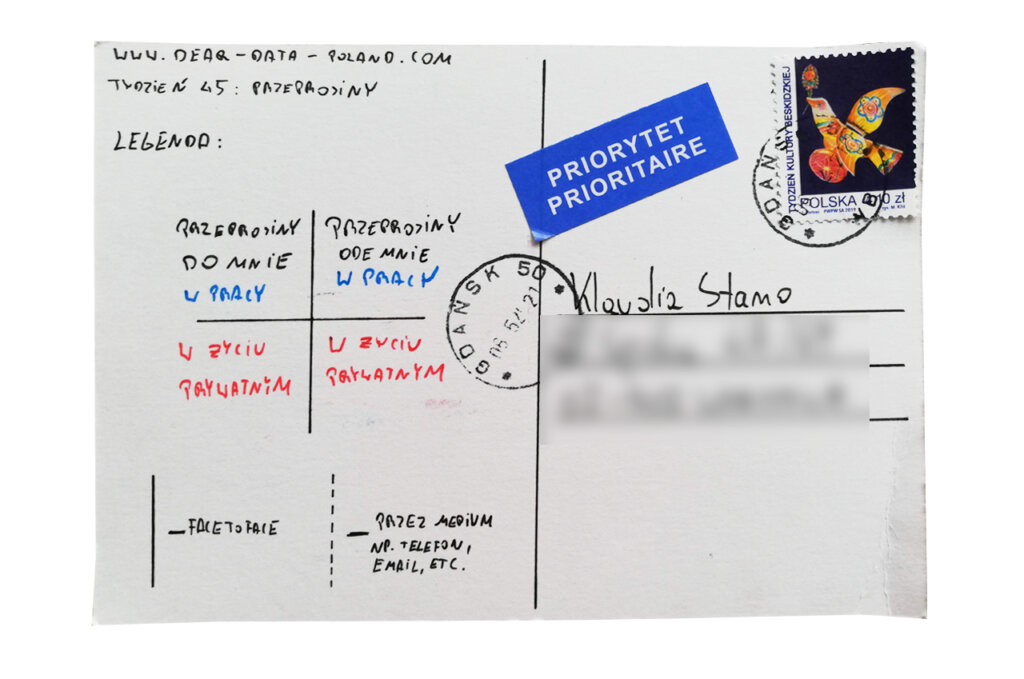
Jakub
Topic:
I try not to disregard the meaning of words such as: I love you, I’m sorry, thank you, friend, I trust you, etc. I rarely say them and try to use them wisely. The word sorry, however, has its own characteristic and is often used in trivial situations. Such a trivial matter is, for example, asking someone to move if we cannot open a door or a refrigerator. Eight of the nine “I’m sorry” sentences I said this week were of this kind. I used the word sorry in a deeper sense only once this week.
Data gathering:
I kept the records in a notebook on my phone. It went smoothly. It’s my 45th postcard and I’m quite skilled at it. I was surprised by the fairly small number of “sorry” words addressed to me. I think I could have missed some of them.
Data drawing:
I had little time to draw my postcard and I was looking for a minimalistic creation. I decided to use the matrix and I think I overdid it. The combination of continuous and dashed lines impairs legibility. The same color of the axis labels is also a mistake.
Klaudia’s postcard:
The words sorry written in different languages disturb my reception of Klaudia’s postcard a bit. However, I know that it is difficult to draw a postcard with only a small amount of data. I also often choose to visually enrich my graphs.
Klaudia… you were never late for our meeting 🙂
The process:
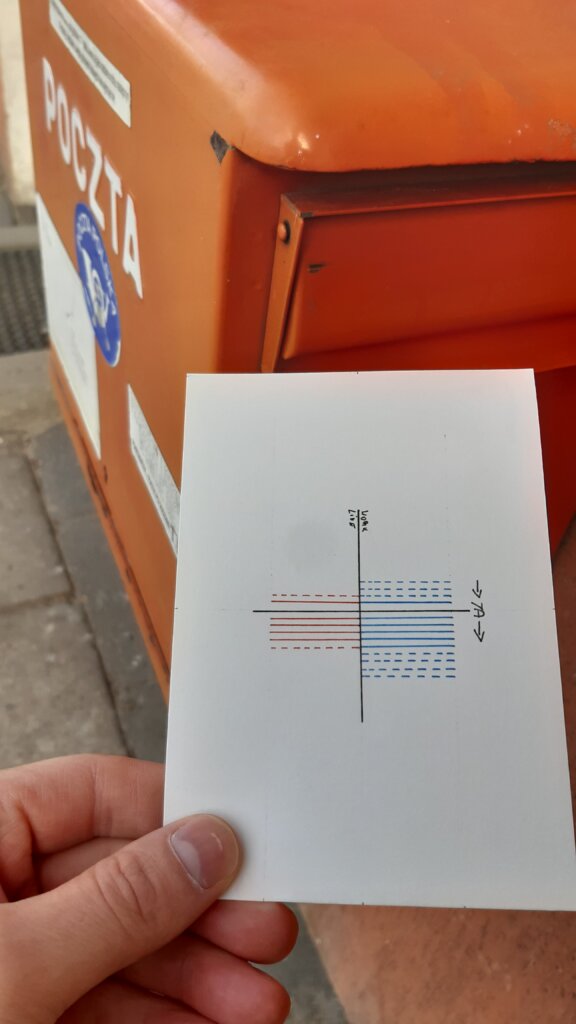
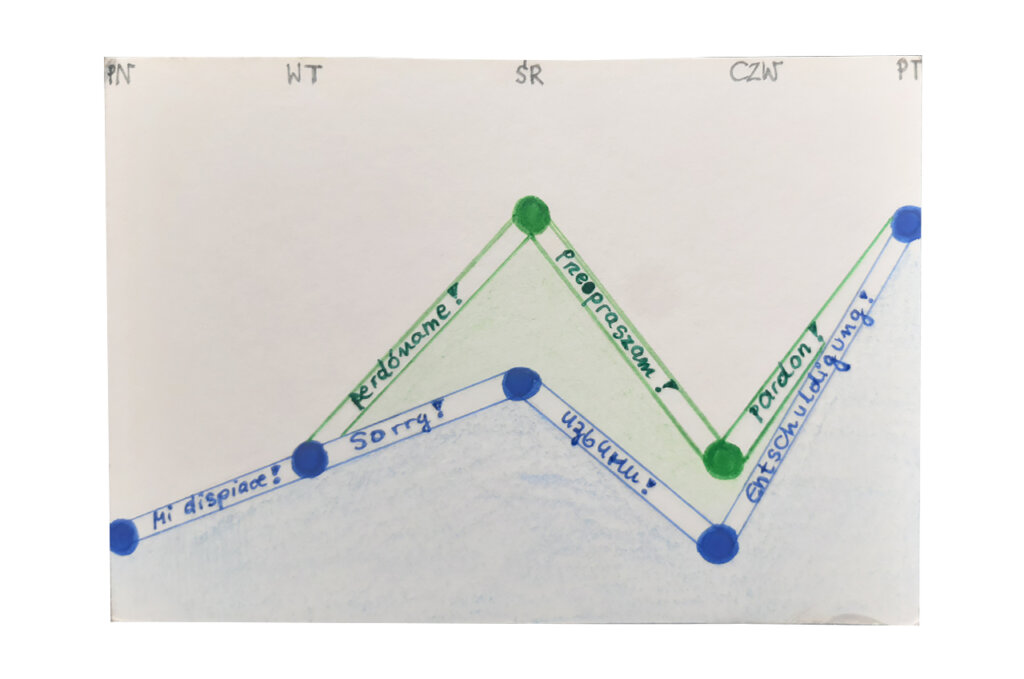
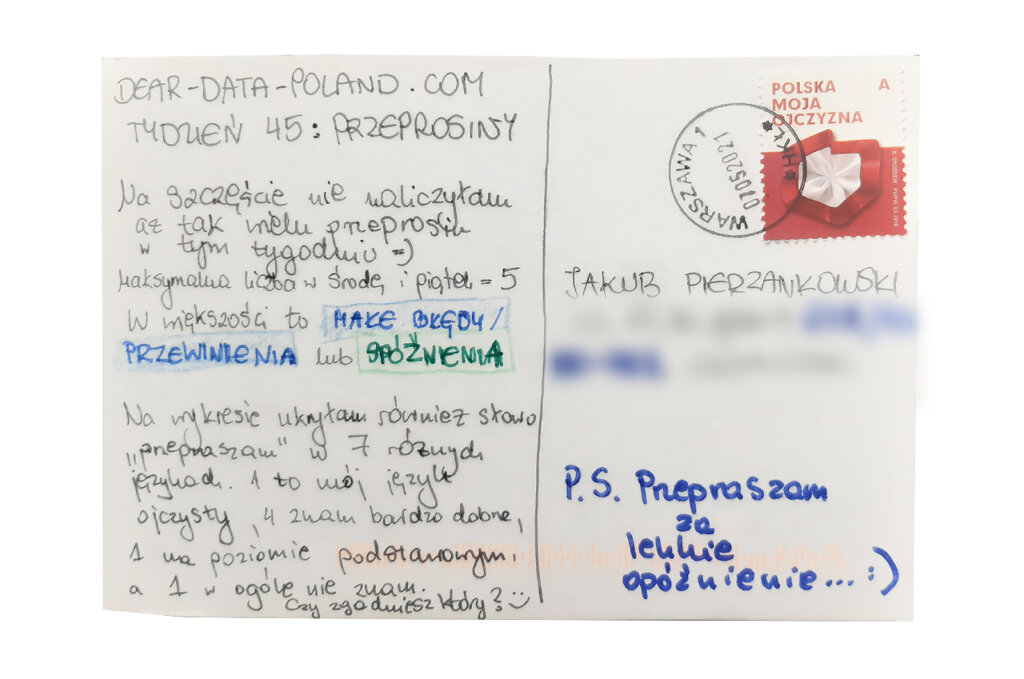
Klaudia
Topic:
I approached the topic without emotion. My philosophy is to have as few reasons to apologize as possible. Whenever I say something unpleasant, I try to fix the situation as soon as possible.
I am often late (especially for face-to-face meetings) and this is something I often apologize for…
Data gathering:
I did not collect much data. Due to remote work I probably avoided many small apologies that could have taken place in the office (e.g. taking one’s pen by mistake or pouring too little water into the kettle :-)).
My apologies were mostly triggered by overlooking or forgetting about something at work and at home.
Data drawing:
As I thought about presenting my modest data, the word sorry came to my mind in the various foreign languages I know. I even looked for websites with translations of the word sorry into all the languages of the world. Apparently I was looking for non-obvious inspirations.
As usual I was thinking about how to categorize my data. This week I only got two categories: 1) minor errors / omissions and 2) late arrivals.
I decided to combine the stacked line chart with my linguistic hobby. I also hid a mini-riddle for Jakub in the postcard.
Jakub’s postcard:
It took me a while to decipher this unusual visualization 😉 It’s interesting that Jakub counted the apologies directed at him, I didn’t think about it…
The process:
